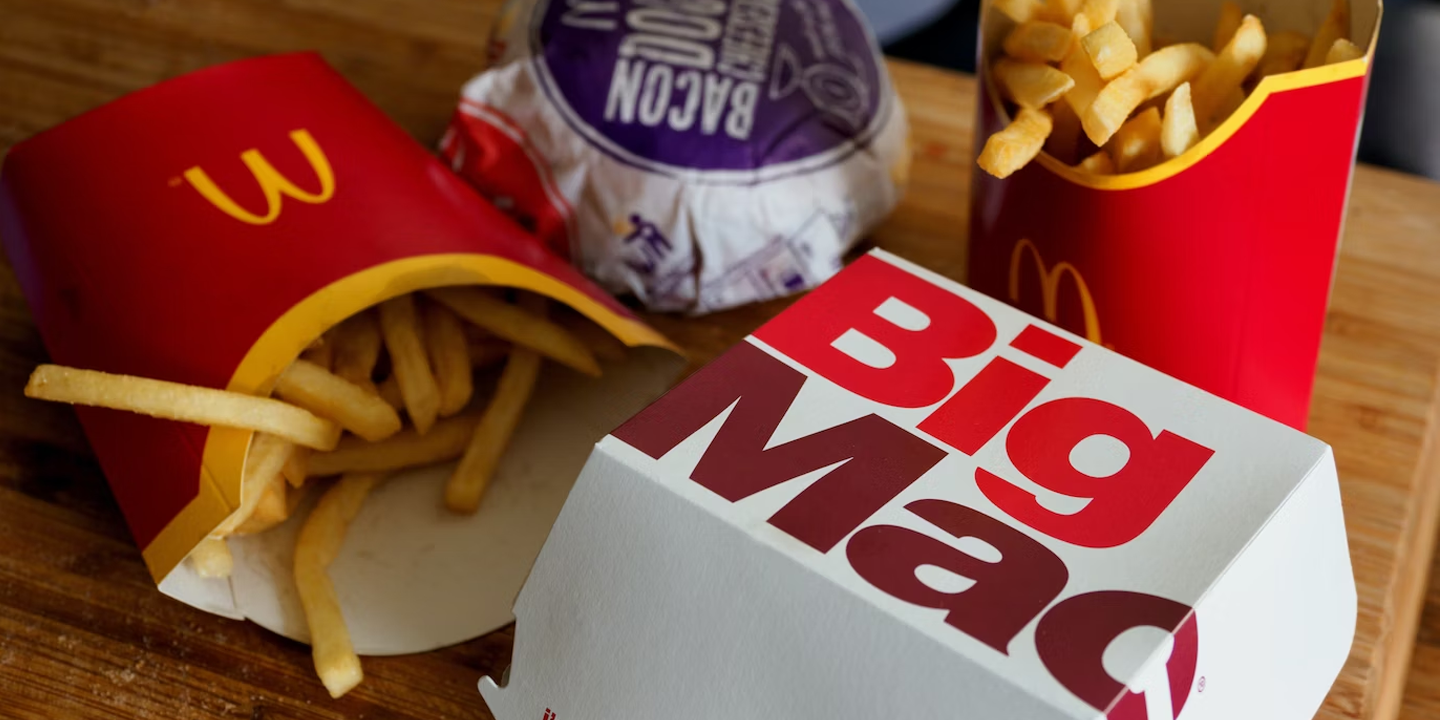How Strict Is Your Diet?
From counting every crumb on your plate to ignoring your hunger cues, there are usually clear warning signs that your diet is too strict. And while it might seem helpful to label foods as "good" or "bad," you'll only end up with an unhealthy mindset and relationship with eating. If you want to lead a healthier lifestyle, here are 10 signs your diet may be too restrictive and 10 better habits to adopt instead.
1. You're Counting Every Calorie
While you might be adopting a CICO (calories in, calories out) diet, you don't want to go to the extreme and start counting every single calorie on your plate. It's fine to just be mindful of what you're putting in your body and to make healthier choices. Focusing too much on numbers will lead to a negative mindset around food and may make you restrict your caloric intake even more.
2. You're Too Restrictive
No one says you can't reach for a cookie from time to time, or have that scoop of ice cream after a particularly stressful day at work. You don't need to be so restrictive to the point that you never indulge your cravings. In fact, doing so might actually lead to bingeing, and you might end up overconsuming after a period of severe restriction.
3. You Feel Guilty
When you do indulge your cravings, you feel guilty. You might end up cutting your calories even more to "make up" for whatever snack or sweet you ate, even if it was something small. This kind of mindset should immediately ring warning bells in your head, because allowing yourself an occasional treat should never make you feel bad.
4. You Ignore Hunger Cues
Sure, intermittent fasting may be a method that works for you, but when your body tells you it's hungry, you shouldn't ignore it. It might cause you to overeat by the time you do feed your stomach, and delaying your meals may even slow your metabolism. If you're hungry, go eat.
5. You Avoid Eating Outside
If you have a very restrictive diet, you might avoid eating out altogether. This is because you think you can't control what comes on your plate, and you don't know if you'll exceed your daily calorie limit. Even when you do eat out, you choose simple salads and snacks over entrées that fill you up.
6. Your Cheat Days Often Turn into Binges
When you do allow yourself a cheat day, say, after a week of restrictive eating, you might accidentally indulge yourself too much. This might be because you've trained your brain to think that this is your one chance to indulge your cravings, so you tend to overeat when you finally loosen up your rules.
7. You Painstakingly Measure Your Portions
Similar to counting calories, another sign your diet is too strict is when you're painstakingly measuring out your portions down to the gram. While you should get enough protein, veggies, and nutrients in each meal, you should also think about what your body needs—which includes listening to your hunger and fullness cues.
8. You Label Foods as "Good" & "Bad"
As mentioned before, you might sometimes feel guilty for indulging in certain snacks or treats because you've trained your brain not to eat them on your diet. In fact, you have a mental (or physical) list of "good" foods and "bad" foods, and you do your best to steer clear of the bad. While this can promote healthier eating, it may lead to a negative mindset.
 Photo By: Kaboompics.com on Pexels
Photo By: Kaboompics.com on Pexels
9. You Avoid Social Situations
More than just avoiding eating out, you've stopped attending social events with your friends and family. This is usually out of fear that you won't be able to control your urges, or you might indulge too much. It may even be because you're scared of others seeing you eat. Whatever the reason, if your diet starts to interfere with your normal life, that's a huge red flag.
10. You're Constantly Thinking About Food
When you have too strict a diet, you end up thinking about food constantly. What should you eat for lunch?
For dinner? What's the healthiest choice? What sauce can you add that has the least amount of calories? It's these kinds of thoughts that might make you develop an unhealthy mindset about food.
Now that you're aware of some signs of a strict diet, let's jump into 10 healthier habits to adopt.
1. Practice Mindful Eating
Mindful eating is focusing on how food tastes and how it makes you feel. You should enjoy your meals, and that means bringing your attention to the unique flavors and textures in every dish, and savoring every bite. Mindful eating also helps slow down your pace, and you'll be more aware of your fullness cues when they hit.
 Pablo Merchán Montes on Unsplash
Pablo Merchán Montes on Unsplash
2. Listen to Your Body
As we've mentioned, you shouldn't ignore your hunger cues or restrict your calories to the point where you still feel starved after your meals. It's important to listen to your body and give it what it needs.
3. Understand Your Body
Diets can affect everyone differently because our bodies aren't the same. The same diet that worked for your friend or coworker might not be the one for you, especially if they're taller, shorter, or have a body type that's different from yours. To find a diet that works for you, you need to first understand your body so you can achieve weight loss without sacrificing your health.
4. Aim for Balance
Instead of severely cutting out certain foods, you should be aiming for balance so you're not deprived of the things you do want to eat but think you "shouldn't". This way, you develop a healthier mindset around food that allows you to sustain your diet for longer—or even turn it into a lifestyle.
5. Vary Your Meals & Options
And it's not just balance you should aim for—you want variety, too. While meal prepping can be a great way to keep consistent (and save you time throughout the week), eating the same thing every day might dull your taste buds. Try mixing up different ingredients and recipes so your meals stay fun, healthy, and interesting.
6. Stop Mentally Labeling Food
To adopt a healthier mindset around your diet and food in general, it's important to stop labeling which ones are "bad" and "good". Sure, you shouldn't always pick fried chicken over lean salmon, but you shouldn't severely restrict yourself, either.
7. Honor Your Cravings
Along with axing the habit of mentally labeling food, you should also honor your cravings. Let yourself have a piece of cake once in a while—you deserve it. Food is meant to energize you, and treats can absolutely be a part of a healthy lifestyle. What they shouldn't do is make you feel guilty or that you've "failed" when you indulge in a scoop or slice.
8. Stay Hydrated
Even with all this talk about food, it's just as important to stay hydrated.
Our bodies are roughly 60% water, which comes as no surprise, given that water is essential for allowing our bodies to function normally. Remember to drink at least six to eight glasses each day.
9. Stay Active
Again, it's not just about food. It's also about getting enough exercise and encouraging yourself to move whenever possible. You should aim to get at least 30 minutes of physical activity in five days a week or more. This could mean hitting the gym or just going for a jog around the neighborhood.
10. Focus on Achieving a Happy, Healthy Lifestyle
Your diet doesn't have to be perfect. You don't need to painstakingly pick out which foods you can eat from ones you can't. At the end of the day, you want to plan a diet that works for you, not against you. The best tip is to treat your diet as a lifestyle change, rather than just a short-term stint.
KEEP ON READING

The Most Popular Chocolate Bars in the USA

























